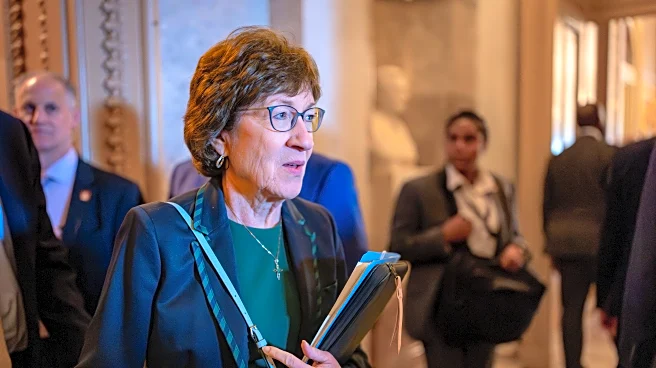What's Happening?
A recent report from the Pew Charitable Trusts reveals that a significant number of Americans are paying out of pocket for nondegree credential programs. The report, based on 2022 data from the National
Training, Education and Workforce Survey conducted by the U.S. Census Bureau, indicates that interest in nondegree credentials has surged, with the rate of attainment tripling between 2009 and 2021. The survey included over 15,000 American adults and covered vocational certificates, industry licenses, and personal certifications. Despite the growing popularity of these programs, 51% of vocational certificate holders and 71% of professional license holders reported using personal funds to finance their education. Additionally, a portion of these individuals relied on loans or employer support, highlighting the financial burden associated with nondegree credentials.
Why It's Important?
The findings underscore a shift in educational preferences, with more Americans opting for nondegree credentials over traditional degree programs. This trend could have significant implications for the U.S. workforce, as nondegree credentials often provide specialized skills that are directly applicable to various industries. However, the financial strain on individuals paying out of pocket raises concerns about accessibility and equity in education. The high costs associated with these programs may lead to unsustainable debt for some, potentially limiting opportunities for career advancement. Understanding how students finance these programs is crucial for developing policies that support affordable education and protect individuals from risky financial decisions.
What's Next?
Further research is needed to explore the financial strategies employed by students pursuing nondegree credentials. Pew Charitable Trusts suggests investigating the use of credit cards and other financing methods to better understand the economic impact on students. This information could inform policy changes aimed at reducing the financial burden and ensuring that nondegree credentials remain a viable option for skill development. Stakeholders, including educational institutions and policymakers, may need to consider expanding financial aid options and employer partnerships to make these programs more accessible.
Beyond the Headlines
The rise in nondegree credential attainment reflects broader changes in the educational landscape, where practical skills and industry-specific knowledge are increasingly valued. This shift may influence the future of higher education, prompting institutions to adapt their offerings to meet the evolving needs of the workforce. Additionally, the emphasis on nondegree credentials could lead to a reevaluation of traditional degree programs and their role in career preparation.









